- Client
- Haus der Bayerischen Geschichte
- Content
- 3D measurement, producing a replica in original size
- Related topics
- Model making service
- Keywords
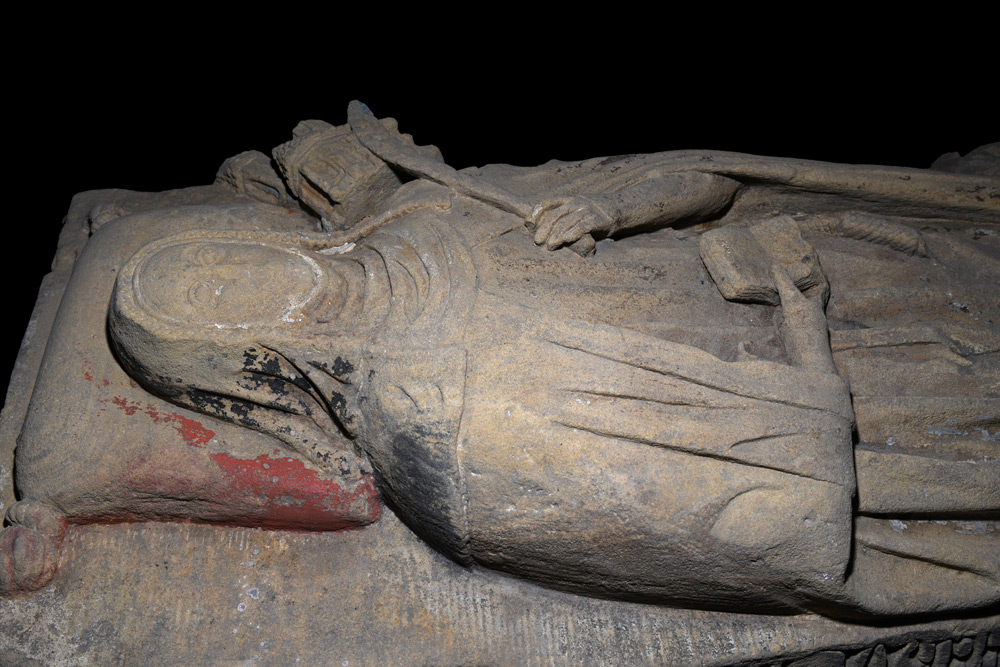
For ArcTron 3D GmbH, the project task consisted of the 3D scan and detailed reproduction (high-resolution 3D printing) of the epitaph of the founder and abbess of the Bamberg Poor Clares Monastery, Katharina Zollner, from 1375.
In addition, the 3D replica was to be enriched with a color reconstruction based on the setting and pigment analyses of the client’s restorers.
For this purpose, the almost 2m long original was first scanned in very high detail resolution (sub-mm accuracy) using a combination of structured light scans and close-range photogrammetry. The non-contact 3D documentation was carried out on site in Bamberg. The original is located there in the stone depot of the municipal museums.
In the 3D model reduced for the online viewer, you can still zoom in closely to assess the color pigments still preserved – from several versions.

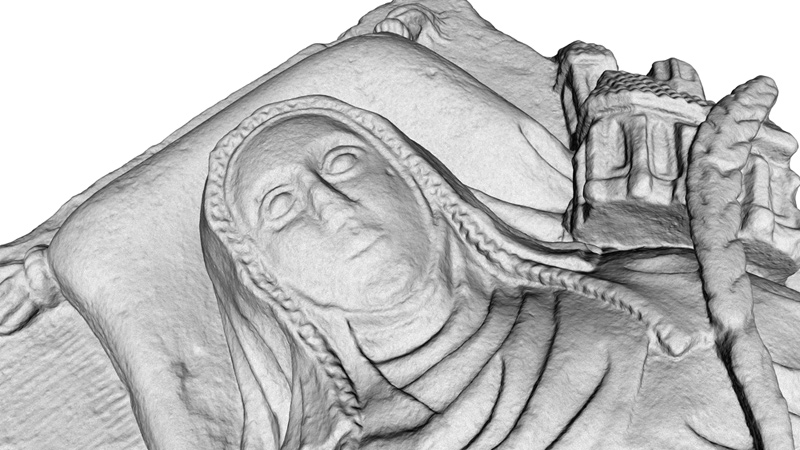
The digital 3D data was processed by ArcTron 3D’s team of specialists and prepared for 3D printing. This data served as the basis for the 1:1 reproduction of the object.
The colorless surface of the blank print requires several layers of the adhesive and primers, as well as color and shadow layers, which are made for each project based on the original colour texture, the 3D model, images or, as in this case, concrete color specifications. Finally, the object receives a multi-phase matte fog varnish.
Thus, according to the client’s specifications, a proposal of a colorful tomb relief was created, as it might have once looked like.
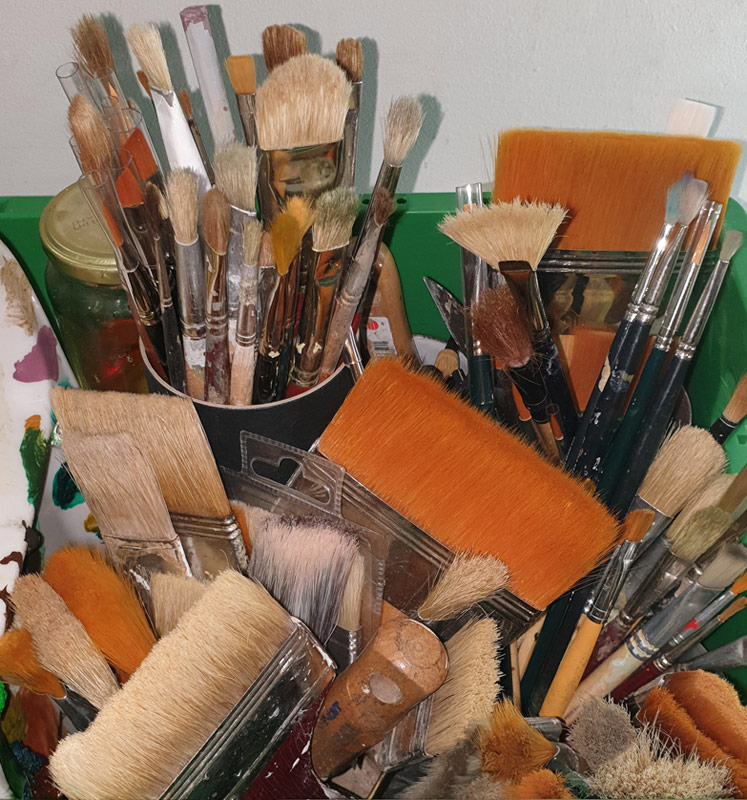
Based on the 3D scans and the restorative pigment analysis, a multi-stage virtual 3D color reconstruction was first realized on the computer, which later also formed the basis for the real painting of the replica.
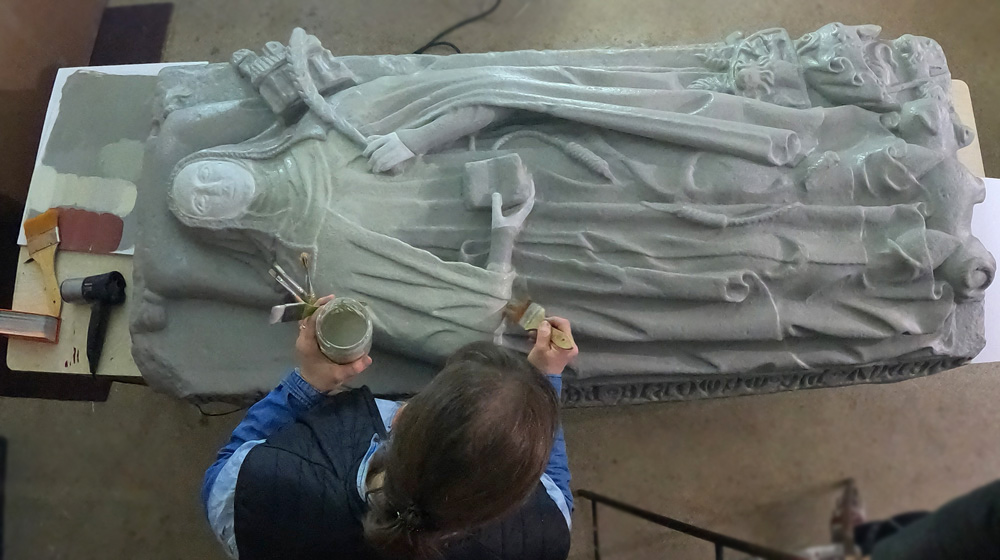
The result was a proposal of the former colorfulness, as it once might have looked like.
The replica is quite impressive and will be on display for visitors in Ansbach until November 2022.
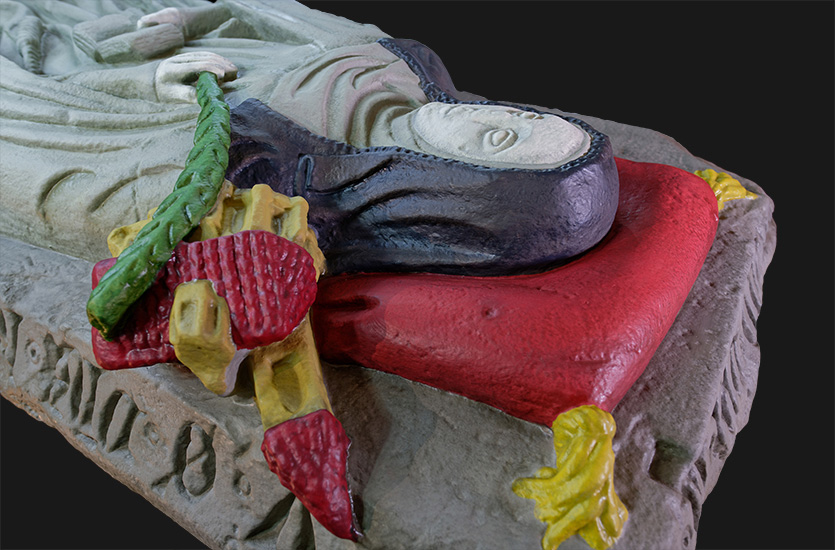
For more information on the exhibition, visit the HdBG website:
https://www.hdbg.de/basis/ausstellungen/vorschau/typisch-franken.html
BR Radio contribution to the exhibition (in German):
https://cdn-storage.br.de/MUJIuUOVBwQIbtChb6OHu7ODifWH_-4H/_-OS/_2bG9-rc_U1S/81cda2cf-6e8d-4785-abaf-98bd61b5e884_2.mp3
Bavarian State Exhibition2022 „Typisch Franken?“
Where: In the Orangerie Ansbach + St. Gumbertus, Promenade 33, 91522 Ansbach
Duration: 25. May until 6. November 2022
The waitress Coletta Möritz was portrayed in 1881 by the later painter Friedrich August von Kaulbach on a façade painting. Coletta alias the “Schützenlisl” became very well known and became a symbolic figure of the Bavarian tavern culture, which found numerous other representations. In the Bavaria exhibition, the House of Bavarian History (HdBG) Regensburg shows a porcelain statuette in colour of the “Schützenlisl” from its own collection. The copy described here as a full-size tactile model serves as an active station and for inclusion purposes for the blind and visually impaired.
In the reduced online 3D model, the 3D scans from computed tomography, which provide a view of the interior, are fused with surface photogrammetry.
Documenting the highly reflective surfaces of the porcelain statue in true color was a particular challenge for this object, both in terms of 3D imaging and data processing.
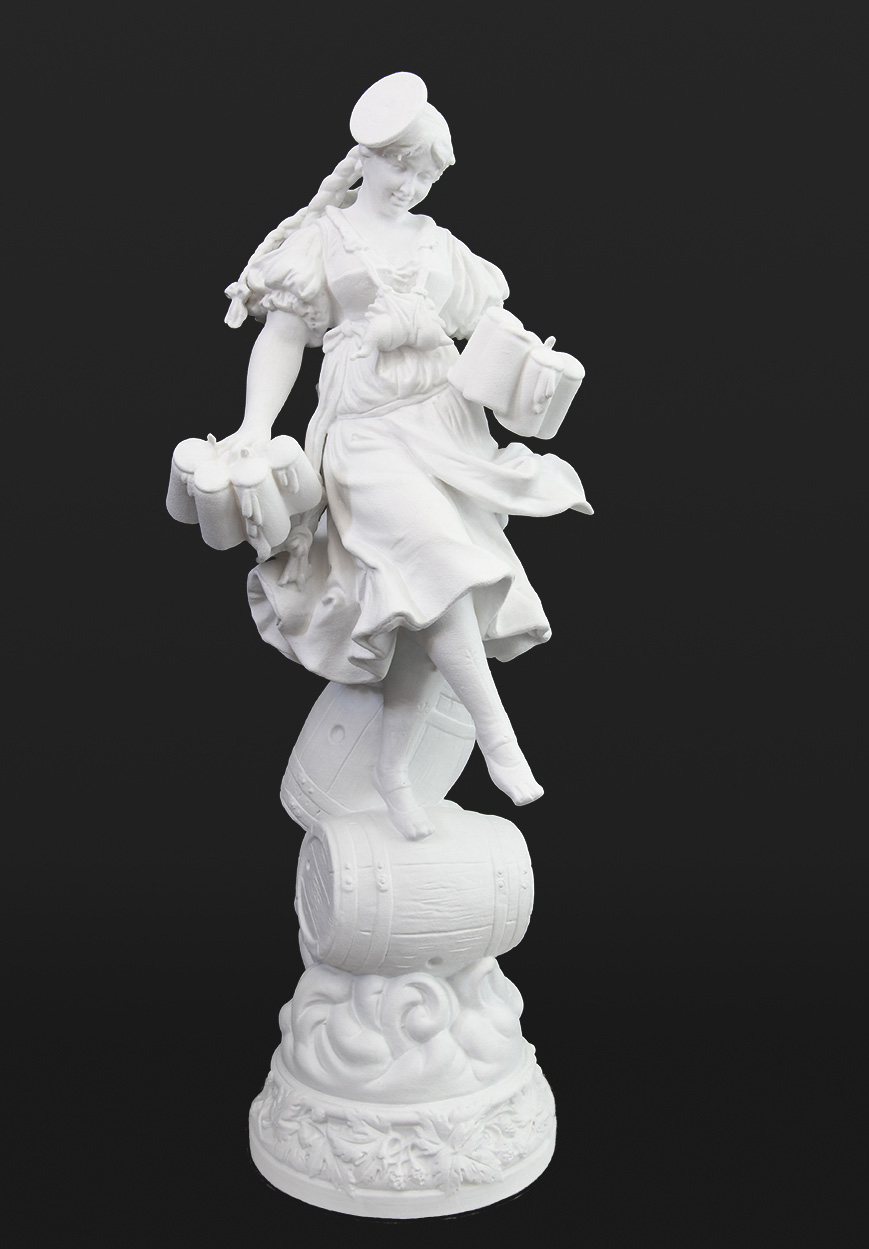
Creating a 3D tactile model
For the reproduction, the original was digitally captured using 3D technologies. The data was calculated accordingly and prepared for 3D printing. This resulted in a 1:1 copy made of high-quality plastic.
The original colors are not reproduced in the tactile model, because it’s supposed to be presented in matt, white color.
Visit the current exhibition in Regensburg and experience the native culture in the current exhibition. There, the Schützenlisl is at display and the tactile model is waiting for your touch.
More information about the object and the exhibition can be found at the following links:
https://www.museum.bayern/ausstellungen/bayernausstellung-wirtshaussterben-wirtshausleben.html
Bavaria exhibition 2022 „Wirtshaussterben? Wirtshausleben!“
Where: Regensburg, Haus der Bayerischen Geschichte
Duration: 30. April until 11. December 2022